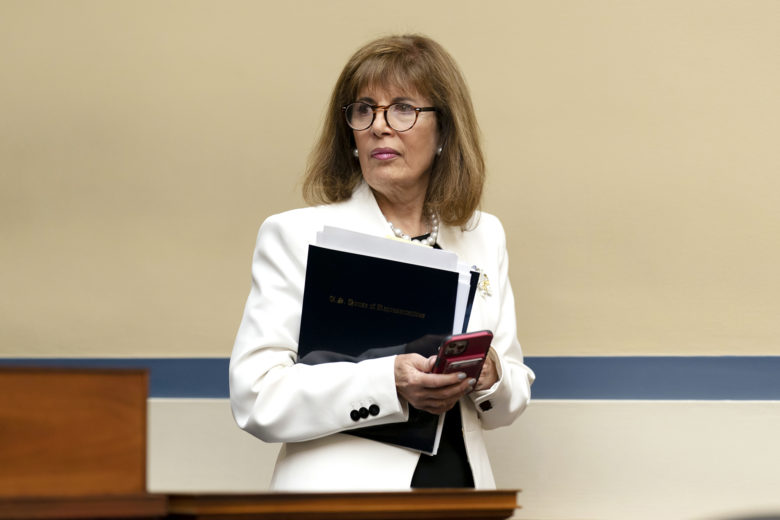Rep. Jackie Speier (D-Calif.) announced Tuesday she will not seek reelection in 2022, becoming the latest high-profile Democrat to retire from politics as the party seeks to hold on to narrow majorities in the House and Senate next year.
“It’s time for me to come home,” said Speier in a Twitter video announcing her decision.
Speier, who has been a member of Congress since 2008, recalled the 1978 assassination of Rep. Leo Ryan (D-Calif.) by followers of cult leader Jim Jones shortly before the infamous mass murder-suicide of Jones’ followers. Speier, then a Ryan staffer, was shot five times but survived.
“Forty-three years ago this week, I was lying on an airstrip in the jungles of Guyana with five bullet holes in my body,” Speier said. “I vowed that if I survived, I would dedicate my life to public service.”
“It has been a remarkable journey that has surpassed my wildest dreams,” she added. “Today, I’m announcing that I will not be a candidate for reelection to Congress in 2022.”
The 71-year-old Speier, who represents a safe Democratic seat in the San Francisco Bay area, said that it was time for her to “be more than a weekend wife, mother and friend.”
The announcement by Speier comes one day after Sen. Patrick Leahy (D-Vt.), the longest-serving member of the upper chamber, revealed he would not seek a ninth term next year.

During her time in Congress, Speier served on some of the most powerful House committees, including the Intelligence, Oversight, and Armed Services panels. At the outset of the #MeToo movement, she shared her own story of being sexually harassed as a young congressional aide by an office chief of staff.
“I know what it’s like to lie in bed at night, wondering if I was the one who had done something wrong,” she said in 2017, encouraging other women who worked at the Capitol and who had been subjected to harassment to come forward. “I know what it’s like years later to remember that rush of humiliation and anger.”
Her work helped pass the Congressional Accountability Act Reform Act, which went into effect in 2019 and expands protections for congressional aides who have been subject to harassment.
House Speaker Nancy Pelosi, who also represents the Bay Area, praised Speier in a statement, calling her “a force in the fight to combat sexual assault and harassment in all places.”
“Her legislative success, including to bring the Me Too movement to Congress,” Pelosi said, “has helped defend the dignity and rights of so many.”
Speier is the ninth House Democrat to indicate that they will retire from public office in 2022, a list that includes powerful House Budget Committee chairman John Yarmuth of Kentucky and House Democratic Steering Committee co-chair Cheri Bustos of Illinois.

Democrats currently hold an eight-seat majority in the House and face a steep challenge to keep control of the chamber next year. Republicans are feeling confident of taking control of both the House and the evenly divided Senate following victory in the Virginia gubernatorial race and a stronger-than-expected performance in the New Jersey gubernatorial race.
Last month, House Minority Leader Kevin McCarthy (R-Calif.) predicted more retirements as Democrats grapple with the prospect of being in the minority.
“Once you get past Thanksgiving and members go home, and they’re Democrats, and they’ve been challenged before, and they’re going to get beat up, Congress is not that great,” he told Fox News.
Meanwhile, a Washington Post-ABC News poll published Sunday found that 51 percent of respondents were more likely to vote for a Republican House candidate next year, while just 41 percent said they were more likely to back a Democratic House candidate.











Leave a Reply